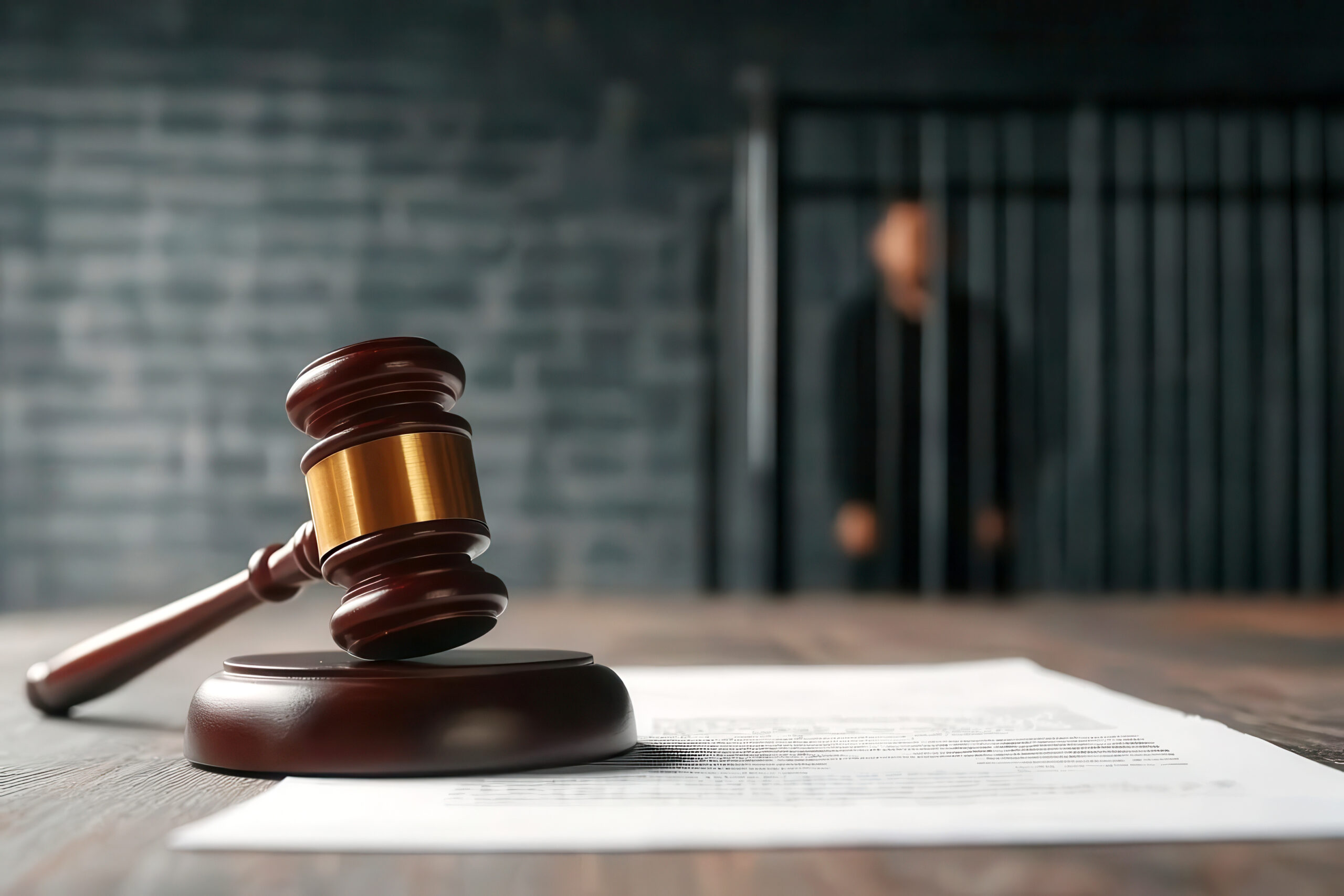


Our Stuart, Florida Criminal Appeals Attorney Will Fight For Your Freedom
We are Jeff T. Gorman Law Firm, where we really understand that a conviction can sometimes feel like the end of your fight, but it never has to be. If you believe your trial wasn’t fair or the results you got were wrong, our professional criminal appeals lawyer in Stuart, Florida is ready to protect you at all costs. We know how overwhelming the legal process can feel, especially when it can change your life. That’s why we are dedicated to providing needed support with great expertise!
The appeal process can be very complex, but as our team has a deep understanding of it, we can make it easier for you. From identifying trial errors to presenting strong arguments before the court, we can make sure to win your case. We never leave any stone unturned to uncover every mistake, protect your rights, and fight for your justice. It can be challenging evidence, exposing some procedural errors, or looking for new legal arguments, we are always by your side to prove your truth.
Move forward to a brighter future with us – trust Jeff T. Gorman Firm and make sure your case is in capable hands!
A criminal appeal is a way to not adjust with a conviction or sentence and ask a higher court to review your original trial. It’s not the same as a new trial because an appeal doesn’t involve new evidence or witness testimony. Instead, it aims to find mistakes in how the law was applied or whether the trial process went by following the rules.
If you want to succeed, you should understand how appeals are different from other post-conviction options – motions for a new trial and habeas corpus petitions.
A motion for a new trial asks the original court to reopen the case for the reason that new evidence was discovered or a misconduct was discovered. In contrast, a criminal appeal is about reviewing the trial for legal errors. Habeas corpus petitions deal with unlawful imprisonment and usually come into play after the appeals process has been executed.
To start an appeal process, we should fill a notice of appeal in the appellate court. Then we review trial records, identify errors, and submit a written argument, known as a brief, to explain why the conviction or sentence should be overturned. Sometimes, your appeal attorney may also present oral arguments. After these processes, the appellate court will decide if they’re going to uphold the original decision, change your sentence, or order a new trial.
Criminal Attorney Stuart FLcan give you a chance to protect your rights again and fight for justice. However, it’s not an easy process. It has strict deadlines, so it’s relevant to have an experienced appeal lawyer to guide you through all.

EvieJanuary 8, 2025Trustindex verifies that the original source of the review is Google. Chris walsh is by far the BEST & let me just say i am speaking from experience... not only does he deliver, but he is communicative...Mr.Walsh really is a great attorney i was as confident as one can be during times like this I can't speak highly enough of Mr. Walsh. Don't sell yourself short. hire MR WALSH ....YOU WILL BE Grateful you didCarmelo PerezNovember 21, 2024Trustindex verifies that the original source of the review is Google. Ms Torres kept me up to date on my case. She did a wonderful job and I couldn’t be happier with the outcome.Will StrangeNovember 21, 2024Trustindex verifies that the original source of the review is Google. Great work best lawyer in townLovely LatoyaNovember 20, 2024Trustindex verifies that the original source of the review is Google. Bob,Joe and Sasha are helping my sister. They are the best attorneys out there! I just wait say thank you for helping my sister out. You will be blessed and God bless y’all! 🙏🏽❤️Antonio AndresNovember 19, 2024Trustindex verifies that the original source of the review is Google. Chris Walsh was amazing handling my case. He was looking out for my best interest. He was about to assist me with the legal matter.Jeff AnielloNovember 13, 2024Trustindex verifies that the original source of the review is Google. I want to express my heartfelt gratitude and appreciation for Joe Grant and his amazing team—Cynthia Bruno and Bob Woodberry. Going through a divorce is never easy, but from the moment I hired Joe and his team, I felt supported, heard, and understood. They were professional, compassionate, and truly went above and beyond in guiding me through every step of the process. Joe’s expertise and dedication were evident from our first consultation. He took the time to thoroughly explain my options and helped me make informed decisions that were in my best interest. Cynthia and Bob were equally amazing—always prompt, thorough, and incredibly knowledgeable. Their attention to detail and constant communication made a difficult time much more manageable. I am incredibly grateful for everything they did for me, and I would highly recommend Joe Grant and his team to anyone in need of legal assistance. They are not only skilled professionals, but they genuinely care about their clients. Thank you so much, Joe, Cynthia, and Bob—you have made a challenging journey so much easier! Respectfully, Jeff AnielloAnthony GorneyNovember 10, 2024Trustindex verifies that the original source of the review is Google. Good guy, very good at his job never let any of my people downChelsee SaundersOctober 31, 2024Trustindex verifies that the original source of the review is Google. I hired Gorman Law for my divorce and was lucky enough to work with Joe Grant and Elaine. They were consistently available for my needs.. answered every question and listened to everything I wanted to share. The most important thing for me was that I truly felt supported and respected the entire time. From the first phone call until mediation day .. I knew Joe had my back— Thank you!

From overturned convictions to reduced sentences, our results show how we are committed to being the best for our clients.
The first step in the criminal appeal process is filling out a notice of appeal. This document officially tells a court and the other side that you’re challenging the conviction or sentence. In Florida, you have 30 days from the sentencing date to file the notice of appeal. If you miss this deadline it could result in losing your right to appeal.
After you fill out the notice of appeal, the trial court will gather the record, which includes transcripts, evidence, and any motions from your trial. This record is to become the foundation for the appellate court’s review. This is essential as the court will use it to look for any mistakes that might have impacted your case.
Your appellate attorney submits a brief outlining legal errors and arguing for a review of your sentence or conviction. The prosecution responds with a brief defending the trial court’s decision, and your attorney may file a reply to address their points. These written arguments are critical for presenting your case to the appellate court.
In some appeals, the appellate court may give your lawyer an opportunity for oral arguments. This is a chance for your attorney to discuss your case in person and answer any questions from the judges to make things more obvious. However, every case doesn’t involve oral arguments, and it’s optional. These sessions can sometimes clarify complex points in the briefs.
After reviewing the record and briefs, the appellate court will issue a decision. This may uphold the conviction, overturn it, order a new trial, or modify the sentence. While the appellate court’s ruling is usually final, in some cases, you may have the option to appeal to a higher court, such as the Florida Supreme Court.

At Jeff T. Gorman Law Firm, we stand out in criminal appeals defense because we combine in-depth expertise, personalized service, and a good history of many proven successes.
A criminal appeal is a legal process where a higher court reviews the decision of a lower court to determine if legal errors affected the verdict or sentence. Unlike a trial, an appeal does not involve presenting new evidence or witnesses but focuses on reviewing the trial record for mistakes in the application of the law.
In Florida, any defendant convicted of a crime has the right to appeal the conviction or sentence. This includes individuals who have pleaded guilty or no contest, although appealing a guilty plea can be more complex and may be limited to specific circumstances, such as challenging the legality of the plea agreement or the jurisdiction of the court.
Common grounds for an appeal include legal errors made by the trial judge, such as incorrect jury instructions or the improper admission or exclusion of evidence. Other reasons may include insufficient evidence to support a guilty verdict, prosecutorial misconduct such as withholding exculpatory evidence, or ineffective assistance of counsel that deprived the defendant of a fair trial.
In Florida, a notice of appeal must be filed within 30 days after the final judgment or order being appealed. This deadline is strict, and missing it can result in losing the right to appeal.
Once an appeal is filed, the process includes several steps. The trial court’s records and transcripts are compiled, and the appellant (the party appealing) submits a brief outlining the alleged errors. The appellee (the opposing party) responds with their own brief. In some cases, the appellate court may schedule oral arguments where attorneys for both sides present their positions. Finally, the appellate court issues a written decision, which may affirm the original decision, reverse it, or remand the case back to the lower court for further proceedings.
No, appeals are generally limited to the existing trial record. New evidence is not considered during the appellate process. If new evidence emerges, other legal options, such as a motion for a new trial or post-conviction relief, may be pursued.
The appellate court may affirm the conviction, which means the original decision remains unchanged. It may also reverse the conviction, potentially leading to a new trial or dismissal of charges. Another possibility is that the court remands the case, sending it back to the lower court for further proceedings, which could include a new trial or resentencing.
The length of the appeals process can vary widely depending on the complexity of the case and the court’s schedule. It can take several months to over a year before a final decision is reached.
While it is possible to file an appeal without an attorney, the appellate process requires a deep understanding of legal principles and procedural rules. Having an experienced appellate attorney can significantly increase the chances of a successful appeal.
A direct appeal challenges errors that occurred during the trial and must be filed shortly after the conviction. Post-conviction relief, on the other hand, is sought after the direct appeal process has been exhausted and can address issues like newly discovered evidence or constitutional violations that were not apparent during the trial or direct appeal.
Ready to protect your freedoms and your liberties? Take action before a prosecutor can!
florida criminal appeal attorney, jeff t gorman law offices, florida criminal appeal lawyer, jeff t gorman